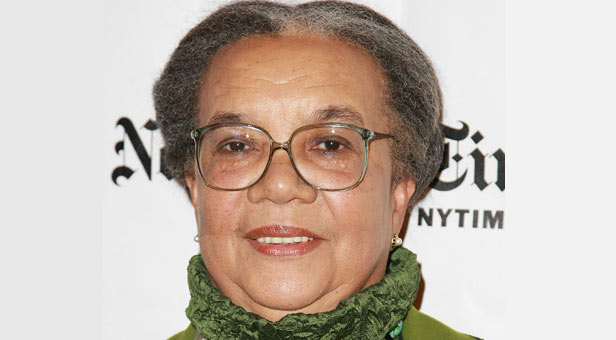

Black children among the nation’s poorest
Edelman Wright says U.S. needs to tackle hunger and hardship.
By Freddie Allen
WASHINGTON, D.C. (NNPA) – As the American economy stumbles through an un-even economic recovery, Black children continue to suffer record levels of poverty, including 1 in four Black children under five years of age that live in extreme poverty, according to the Census Bureau.
The report that tracks income, poverty and health insurance coverage found that in-come remained relatively flat for the major racial groups. The median income for Blacks was $33,321, the lowest for all racial groups. The median income for whites was $57,009 and Asians reported the highest household income at $68,636. For Latinos, the figure was$39.005.
Since 2000, Black income has declined at a higher rate than all other racial groups. According to the Census Bureau report, Black household income is 15.8 percent lower than it was in 2000. White income fell 6.3 percent over the same time period.
The Census Bureau reported that 46.5 million Americans live in poverty, including 10.9 million Blacks. Even though Blacks account for a little more than 13 percent of the total population in the United States, they make up 27.2 percent of Americans living in poverty. In comparison, whites make up roughly 63 percent of the total population in the U.S. and 40.7 percent of the poor population.
A family of four is considered poor when their annual income dips below $23,492. Extreme poverty sets in when the annual income for a family of four falls below $11,746.
Nearly 38 percent of Black children are considered poor compared to 12.3 percent of white children who live in poverty. According to the Children’s Defense Fund, 23 per-cent of Black children under the age of five live in extreme poverty.
“The child poverty rate is still at record levels,” said Caroline Fichtenberg, research director for the Children’s Defense Fund. “At a time when we see corporations earning record profits, at a time when we see income for the top earners continuing to increase, poor children are not getting any relief.”
Fichtenberg continued: “It reinforces the idea that we really cannot cut the safety net for children right now.”
Yet, that’s exactly what law-makers did when they let sequestration, a set of harsh federal budget cuts totaling $85 billion, take effect last March, instead of coming to an agreement on the federal budget. According to the Children’s Defense Fund, 57,000 children have been cut from Head Start and Early Head Start, due to sequestration.
“We’re just not making the investments that we know need to happen,” said Fichtenberg. “We are cutting the safety net, sequestration has been cutting children from Early Head Start and Head Start which are key programs for children helping them to get on the path to educational success and life success.”
In order to reverse trends in children’s poverty rates, Fichtenberg said that the administration should focus on funding the Earned Income Tax Credit, the Child Tax Credit, improving investments in early education, and creating good jobs that pay a living wage.
House Republicans focused on poverty by pushing deeper cuts in safety net programs. Last week, the United States House of Representatives, led by a Republican majority, passed a bill that would slash SNAP benefits (formerly known as food stamps) by nearly $40 billion over ten years. Experts warn that the cuts would push our nation’s poorest deeper into poverty.
According to a report on SNAP by the Center for Budget and Policy Priorities, a research and analysis group focused on fiscal policy and public programs that affect low- and moderate-income families and individuals: “The individuals who would lose basic food assistance under the House provision are among the poorest people in the nation. While on SNAP they have monthly average incomes of just 22 percent of the poverty line, about $2,500 a year.”
CBPP reported that a third of those that would lose benefits if the House bill passes are Black.
“By cutting food assistance for at least 3.8 million low-income people in the coming year — including some of the very poorest Americans, many children and senior citizens, and even veterans — this cruel, if not heartless, legislation could jeopardize a vital stepping stone to many families who are still struggling to find work or who depend on low-wage jobs,” said Robert Greenstein, president of CBPP in a statement following the House vote on the SNAP bill. “As the nation slowly climbs out of the deepest recession in decades — with 22 million people still unemployed or underemployed — millions of families rely on SNAP to help feed their children.”
“For decades, policymakers have shared a bipartisan commitment to reducing hunger and hardship,” said Greenstein in the statement. “This legislation turns its back on that commitment. Senators should firmly reject these harsh cuts and send the President a bill that does not take food off the table of many of our most vulnerable fellow Americans.”
In a statement on the latest Census Bureau report, Marian Wright Edelman, president of the Children’s Defense Fund, said, “Ensuring children’s health and well-being is a test not only of our morality but of our common and economic sense.
Edelman continued: “We need to create jobs, jobs, jobs and jobs that pay enough to lift people from poverty. When will enough of our leaders get it?”


Be the first to comment